We know students who choose pre-health are top-notch. They go above and beyond in everything they do. So it comes as no surprise to see them recognized for their scholarship and community service. Congratulations to our outstanding pre-health student award-winners.
Read more about pre-medical student Christian Johnson (double major in human biology and English) and pre-physician assistant student Bella Menzel-Smith (human biology major).
Health professions news from Michigan Technological University.
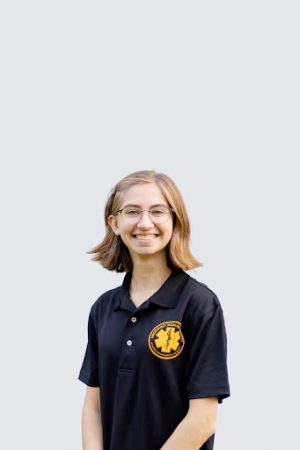
Hello, my name is Chloe Looman and I am this year’s Captain of Michigan Tech EMS. Our agency certifies students and local community members to the EMT level, and in exchange, we volunteer as responders to the Michigan Tech campus and surrounding community. Our response time is mere minutes in comparison to the Mercy ambulance company, which can sometimes take 30-40 minutes to respond as they serve the whole Keweenaw Peninsula.
As Captain, I oversee the three to four responding squads that rotate being on call every 72-96 hours. My journey with the agency began when I was lucky enough to be selected as one of a handful of incoming first-years to the EMT class. The course each year trains about 16-20 students to be EMTs (the lowest level certification that can work in an ambulance) in exchange for volunteering as a responder for a full academic year afterward. Coming to MTU I had my sights set on medical school. I love creative problem solving and people, despite being an introvert, but had little evidence that medicine would be where I would truly thrive. I joined the program not only as a way to gain experience prior to med school but also as a way to explore the clinical side of things.
Through my involvement with the agency, I got just that, and so much more. The EMT course for me was like 3D school. Our tests were practicals where we had to physically demonstrate our skills with the equipment and learn how to ask all the right questions as well as think on our feet. The personal growth I got during the course was immense, and it confirmed that medicine was absolutely the right path for me. After earning my EMT license I got a job as a medical responder at Michigan’s Adventure where I got to treat patients all summer long. This set me up to be very prepared for the next academic year when I was responding with MTU EMS. Living in the dorms gave me the extra advantage of often being the first responder on the scene many times. I got to initiate and direct patient care as well as establish how to take a good care report.
In my second year responding, I got to take the role of Squad Leader. With this position, I got to take a more directive role with my squadmates. In the second semester of that year, I got to move to Lieutenant of my own squad, where I was in charge of driving the EMS Tahoe to scenes and overseeing the patient care. I loved that in this role I got to use my leadership skills to delegate tasks and allow my newer responders to also get the same formative experiences I had gotten as a general responder.
For my final year at MTU as Captain of the agency, it has been incredible to get to direct the inner workings of the agency having served every role at some point myself. I love that with my experience as an introverted leader, I get to use my role to encourage the participation and ideas of every member as well as work closely with the class of students that may someday take my place. Michigan Tech EMS has allowed me to develop strong leadership skills as well as discover that medicine is where I feel most at home. I am currently on three medical school waitlists and eager for a lifetime of treating patients.

It’s no secret the older we get the more we need healthcare. And the U.S. is getting older. Currently, 16.5% of the U.S. population of 328 million people, or 54 million, are over the age of 65, according to the latest census. By 2030, that number will rise to 74 million, a 37% increase. And the number of people over the age of 85, who generally need the most care, is growing even faster.
So it comes as no surprise that healthcare is expected to create jobs at a faster clip than the rest of the economy. The Bureau of Labor Statistics estimates 16% growth across all healthcare professions. And these professions pay very well, too. The table below lists just some examples.
| Occupation |
Projected Job Growth |
Median Pay |
| Audiologists | 16% | $81,030 |
| Chiropractors | 11% | $70,720 |
| Dentists | 8% | $164,010 |
| Optometrists | 9% | $118,050 |
| Occupational Therapists | 17% | $86,280 |
| Physical Therapists | 21% | $91,010 |
| Physicians Assistants | 31% | $115,390 |
| Podiatrists | 2% | $134,300 |
| Speech Pathologists | 29% | $80,480 |
| Veterinarians | 17% | $99,250 |
Michigan Tech’s Pre-Health professions minor has been preparing tomorrow’s healthcare leaders and helping to fill the growing demand for healthcare professionals. Pre-Health professions features helpful faculty and staff ensuring students: meet academic requirements for professional programs, receive valuable clinical experience and successfully navigate the application process. All of which results in a 70% acceptance rate into all health professional programs. For Tech students applying to medical school, they have a 65% acceptance rate (approximately twenty-five percentage points above the national average).
Students can pair this minor with any degree/major they choose at Tech. Popular pairings are made with Human Biology, Medical Lab Science, Biomedical Engineering, Exercise Science, Chemistry, and Psychology. While students can choose any major, these are the most common!
But don’t let us tell you. Hear from our students first-hand how they prepared for the health professional program of their choice.
Listen to Jill Poliskey describe how a study abroad program in Ireland helped her decide to change her focus and her major and decide to go to medical school to become a doctor.
Listen to Abigail Botz describe how getting involved in research on campus and working as a peer health advocate has helped to strengthen her application.
Emma DeBaeke shares her journey from Tech into into Physcial Therapy school.
And Karmyn Polakowski talk about her entrance into med school thanks to Michigan Tech’s Early Assurance Program (EAP) with Michigan State University.
Learn more about Pre-Health at Michigan Tech or contact Nicole Seigneurie, Director, Pre-Health Profession directly at 906.487.2850 or nmseigne@mtu.edu.
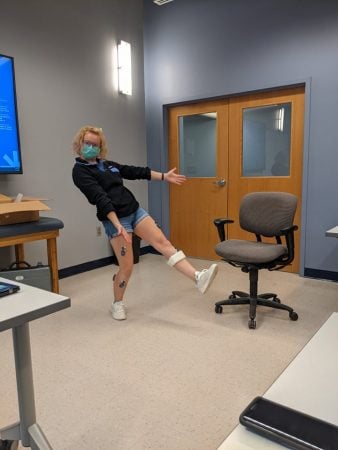
Hi! My name is Allysa Meinburg. I am currently a first-year grad student in the Masters of Prosthetics and Orthotics at the University of Pittsburgh. Prosthetics and Orthotics is a specialty field in rehabilitation medicine that focuses on creating and delivering devices for those with limb deficiencies. This program applies biomedical engineering concepts but adds pathology and physical human care in a treatment plan. This specialty can be in both immediate post-op and long-term care.
I enrolled at Michigan Tech as a Biomedical Engineering major, and later I switched majors to Biology and graduated with a Human Biology major and minors in Pre-Health Professions and Enterprise. Having a strong engineering and biology background has really set me up to have a well-rounded understanding of my field.
I knew I wanted to be a prosthetics and orthotics practitioner since I learned about the field in high school and have been pursuing avenues to get there ever since. I participated in competitive robotics (FIRST Robotics Competition) and later mentored teams through my time at Mott Community College and at Tech. I enjoyed engineering and technical device design but realized I wanted to focus more on healthcare and human practice. I have worked in many healthcare positions as an ER Physicians Scribe, a Surgery Tech, and an Orthotics Technician. My education at Tech enriched my understanding of human biology, research, and design, but my work taught me patient management and healthcare systems technology.
While at Tech, I had participated in Dr. Ongs’ BME research lab but found my true passion on the AAA Prosthetic Enterprise Team. Over 4 years our team addressed the challenge of affordable accessible prosthetic devices. I used my 8 semesters of Enterprise research and design to publish 2 research posters and presented them at the American Academy of Orthotists and Prosthetists national conference. The team I was a part of was made up of mostly engineers, but I found myself focusing on the overall functionality of the product and clinical interactions. With my history of patient care in mind, we designed an ankle prosthesis so it could be easily serviced by the individual with components that are replaceable when they wear out. Having a complete understanding and motivation in product design, I feel like we really created a breakthrough product.
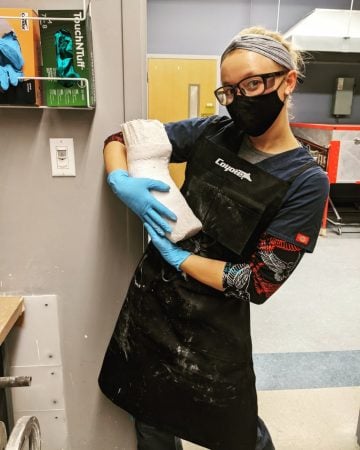
I loved all that Michigan Tech has to offer- both academic and extracurricular! I conducted research in Dr. Ong’s BME research lab and published a paper with his team. On the Enterprise AAA Prosthetic team, we presented research posters at the American Association of Orthotists and Prosthetists conference twice. In my senior year, I was elected the President of the Enterprise Department and received the Outstanding Leadership Expo award. I was also a part of the medical honor society Alpha Epsilon Delta and served as a member and the President. For extracurriculars, I played Women’s Club Rugby, was a member of CRU and loved(!) to play broomball. I would highly recommend joining AED, the national health honor society. This honor society offers great mentoring connections, volunteering, and philanthropy opportunities. I would also recommend conducting research in any department. I learned so much about how to design a research project, gather data, and implement changes. These skills are paramount in Evidence-Based Practice.
My biggest piece of advice for any Tech student is don’t lose your #tenacity! At the time, Tech didn’t have any prosthetics programs, so I created my own! Working with the Enterprise department we, myself, and the other team members expanded the AAA team and now it has an ankle and foot, prosthetic research team. Lots of the P&O background research and medical ISO preparation processes I am now learning in grad school- huge advantage! We sought funding by presenting to other foundations and departments. Ultimately, this spearheaded our traveling and publishing research at the AAOP conference. If you want to study something that doesn’t exist, it just doesn’t exist YET! Go and find what you love and stay #tenacious.
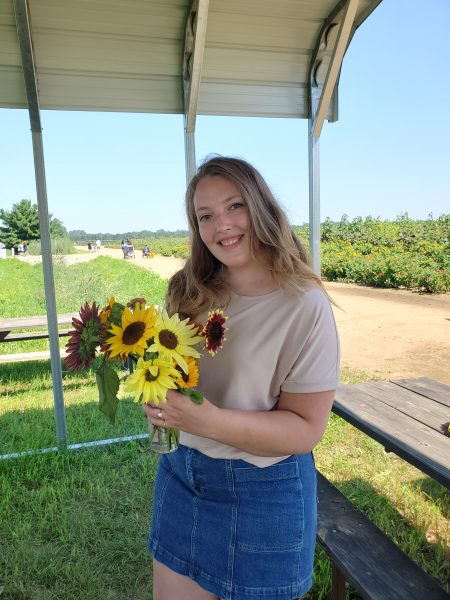
I’m Emma DeBaeke, I graduated in spring 2021 from MTU with a Bachelors of Exercise Science and a minor in Psychology. The research and the anatomical-based program have given me the perfect foundation for the next chapter in my life, Physical Therapy school. I have just started school at the University of Michigan- Flint in their DPT program. Personally, I feel as if U of M has been the right choice for me because of the ability to live closer to my family, the PT Heart clinic, and the amazing professors. However, MTU will always be in my heart.
I wouldn’t be who I am today without my experiences at Tech. With Michigan Tech being so far from my home town it helped me grow. It took a lot of tenacity, determination, and help from the Chemistry Learning Center to make it through my first semester. I also couldn’t have made it through without the supportive community at MTU. I have had numerous occasions where people have helped me shovel out my car from the snow, and I have run into countless alumni downstate who are always so kind.
Throughout my time at Tech I was on the rowing team, a Resident Assistant in DHH, and an Athletic Training Intern. I am still active in the MTU community as a sister of Delta Phi Epsilon. I personally enjoy being busy and these roles allowed me to either give back to the community or better myself personally. I know preparing to apply for graduate school can be stressful. I believe when preparing your resume it’s important to find activities that you enjoy to fulfill the graduate program’s recommendations and help you stand out during interviews.
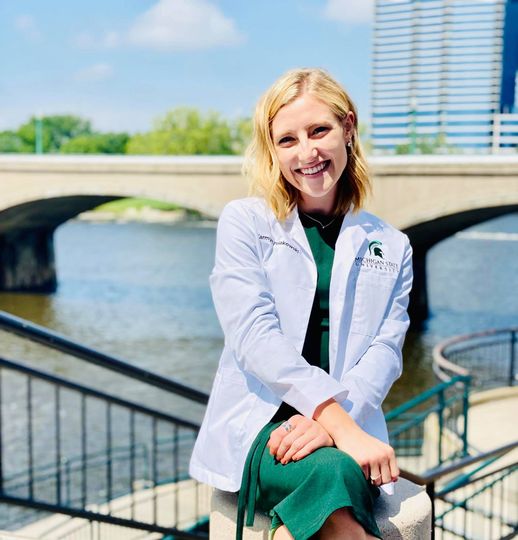
My name is Karmyn Polakowski. I am currently a first-year medical student at Michigan State University College of Human Medicine.
What was your undergraduate major at Michigan Tech? How do you feel this major has prepared you for medical school?
I majored in Medical Laboratory Science (MLS). This degree choice was vital to shaping me into the medical student I am today—I am a strong believer that in order to be a fruitful physician we must know the ins and the outs of medicine from the lab all the way to the patient rooms. Simply because if we don’t know how we got to the answers such as the origin of a particular lab result, it’s difficult to make a diagnosis and explain it effectively to a patient.
The curriculum devised for MLS students is one for students with a desire for perpetual learning and a mind full of curiosity. I promise you, the courses will feed these cravings.
What experiences/resources did you have at Michigan Tech that you felt set you up for success?
Michigan Tech did an amazing job at shaping me into a competitive medical school applicant as well as a successful medical student by providing me with both the people and activities to make me a well-rounded person. Medical schools emphasize not only the necessary science skills but also the soft skills and I truly believe that MTU set me up to do both. In particular, I had awesome instructors, an amazing pre-health advisor, and extracurricular groups that pushed me to be this type of person.
Why did you apply to Michigan Tech’s Early Assurance Program (EAP) with Michigan State University?
I chose to apply to the EAP simply because I knew that MSU College of Human Medicine (CHM) was the perfect fit for me. MSU CHM places an emphasis on producing primary care providers in rural health care settings and that is my personal goal as well. So because my goal aligned with their mission statement so well I decided to apply and even better, apply a little early.
Do you have any tips or advice for future students applying to EAP? Or students applying to Medical school in general?
BE A GENUINE PERSON! Applying to medical school can be frightening because of all of the numbers and statistics about GPAs, the MCAT, etc– however, discovering why you want to do medicine and making that apparent through a genuine and compassionate attitude will take you so much further than a score will. That being said, make sure that you’re always trying your best to do well on your exams and projects, but make sure that you’re also doing things outside of school to shape yourself into a well-rounded person. After all, medicine is about human connectedness, not your best test score.
What type of experiences or extracurricular activities were you involved in?
I was involved in Michigan Tech EMS for a couple of years and it was definitely the highlight of my undergraduate career. I was not only able to deploy my patient interaction and care skills, but I found the EMS family that created bonds to last a lifetime. EMS brings out special qualities in everyone and learning how to utilize everyone’s strengths is really quite eye-opening. This lesson in itself makes me confident in my ability to work well as a physician amongst a group of other healthcare workers someday soon.
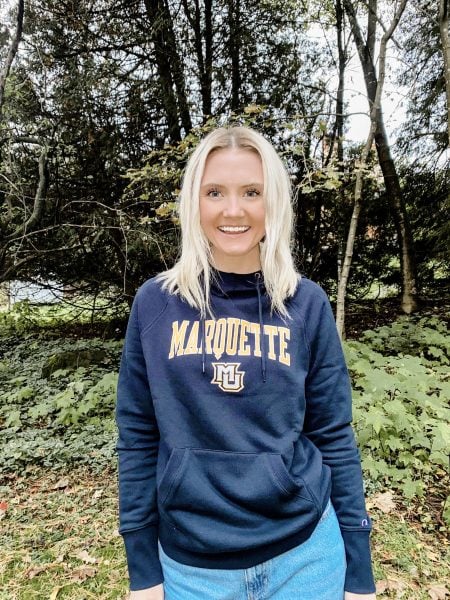
My name is Bella Menzel-Smith, and I am currently a fourth-year student at Michigan Technological University.
I will be graduating this May from MTU with a degree in Human Biology. After graduation, I will be attending Marquette University’s Physician Assistant Program. As a Pre-Physician Assistant student at MTU, I was able to take courses in biology, chemistry, psychology, public health, and epidemiology. My favorite aspect of MTU’s Pre-Health program has been the supportive faculty. I truly have felt that I have been a part of a tight-knit community throughout the past four years. Working with the Pre-Health advisor, Nicole Seigneurie, was so beneficial to me because she was always there to answer my questions and cheer me on along the way. In addition to this, all my professors have been more than helpful to make sure that I succeeded in their classes.
When I was unsure about what I wanted to study during my first year of college, I had an annual healthcare check-up with my healthcare provider who is a Physician Assistant. I asked her questions about her profession, and she had nothing but positive things to say. I decided to do more research on my own, and I found out that the Physician Assistant profession was created in 1965 by Dr. Eugene Stead, in order to address healthcare disparities and the need for more primary care providers. Immediately, I was so excited that I had found a healthcare profession that was created for the exact reasons as to why I wanted to enter the healthcare field! Growing up in a rural area, I have seen firsthand how poverty and access can affect the quality of healthcare that people receive. When people in my community need to see a specialist, they have to travel at least four hours away. Therefore, it is my goal as a Physician Assistant to be a healthcare advocate for marginalized populations and to improve healthcare disparities in rural medically underserved areas.
Once I decided that I wanted to pursue the Physician Assistant profession, I knew that I had to get involved in the MTU community. I have been a tutor at the Chemistry Learning Center, since my second year at Tech. Being a tutor has allowed me to support students during their difficult chemistry classes. I have loved being able to help students build their confidence and strengthen their studying skills. I have also been a Co-President of Student Well-being Advocates at MTU and the President of AED Pre-Health Honor Society for the last year. Both of these opportunities have allowed me to work on my leadership and communication skills. Through Student Well-being Advocates, I was able to start a Winter Warm-Up winter accessory drive that takes place annually on campus. In addition to my involvement on campus, I was fortunate enough to be a Crisis Text Line Counselor where I learned how to be an empathetic listener to people who were in crisis. I know that the lessons I’ve learned throughout this experience will help me with my future interactions with patients. I believe that it’s so important for everyone to get involved with extracurricular activities that you enjoy to help you find your passions in life!
The most valuable advice that I have for anyone who is on a Pre-Physician Assistant pathway is to gain clinical experience. I was a Certified Nursing Assistant for over a year at a local nursing home. Through this experience, I was able to learn how to provide person-centered compassionate care to my residents. I cared for individuals who had a diagnosis of dementia, and I learned the importance of treating my residents as the human beings that they were and not as their diagnosis. I also found that one of my professional callings in life is to be a healthcare advocate for vulnerable populations like the elderly. I know that this experience has taught me so much and will be very beneficial to my future as a Physician Assistant. I hope everyone takes advantage of their time at Tech and gets involved in the community as much as possible. I will forever be grateful for the time that I have spent at MTU!
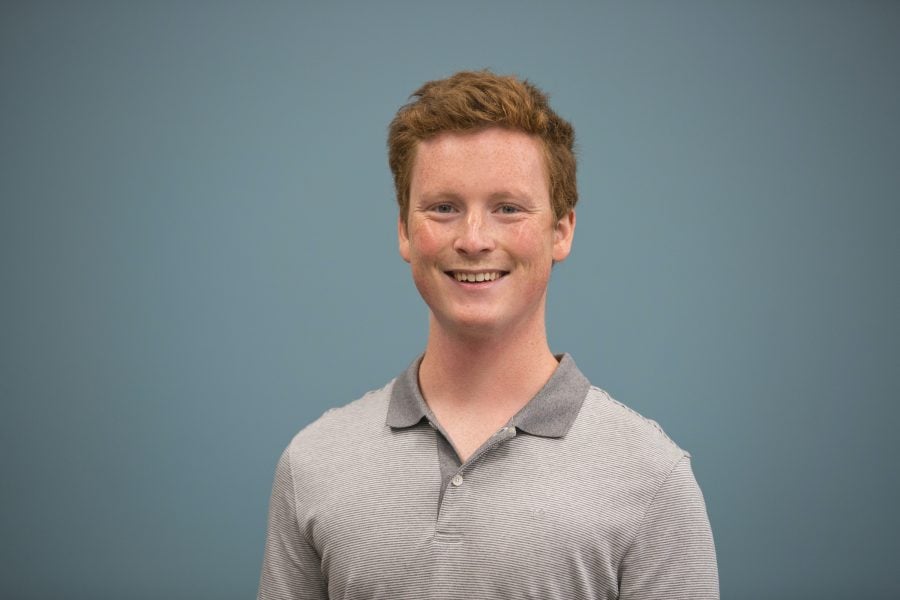
My name is Ben Cockfield, and I am currently a second-year student in the Doctor of Physical Therapy program at Central Michigan University.
I received a BS in Exercise Science and an MS in Kinesiology through Michigan Tech. I began my academic journey in the biomedical engineering department with aspirations to design technology that would interface directly with the human body in some way to improve performance or quality of life. I quickly found out that the engineering-based curriculum was not holding my interest – but the anatomy and human applications of the information was. This was hugely important for me and ultimately led to my switching into the department of Kinesiology and Integrative Physiology and is my first piece of advice: explore often, and if you can, early. Change your mind, change your major! You do not need to have a decision made about what you want to do right away but trying to open as many doors as possible early on – and keeping them open – is relevant for anyone, regardless of major or interests.
I didn’t know I was going to apply to a DPT program until I was starting my MS – although PT school had been on my radar, this felt like a bit of a late decision. Looking back, I am glad I took my time, and in the end, it cemented my certainty to pursue my DPT. This would not have been possible had it not been for the support and connections I made at Tech, specifically, my thesis advisor Dr. Steve Elmer, and the other graduate students in the department. Having a mentor that guided and pushed me was essential during my time at Tech and finding someone like this is critical for growth as both a person and as a professional. Moreover, interacting and networking with graduate students across departments was invaluable to me and highlights another important lesson – surround yourself with people who genuinely care about what they are doing. Passion is contagious, and when you are surrounded by people who are invested and willing to work hard because they care more about just getting a good grade, it encourages you to do the same.
One important note was that I didn’t wait until I was a grad student myself to initiate these interactions, and I would encourage other undecided students anywhere to do the same. The easiest way is to volunteer to be a research participant (affectionally referred to as a lab rat), this allows you to observe the type of research that gets done across a variety of departments while simultaneously learning more about the topic from the students and faculty directly – no one loves to talk more about the most up-to-date research, techniques, and projects than those directly involved with the process, so be careful how many questions you ask, you may end up being there all day!
The last bit of advice I would give anyone interested in pursuing PT is to involve yourself with your local community to some capacity – whether that is through a volunteer organization, church, job, etc. I have been a member of the Mont Ripley Ski Patrol for 5 years and believe that extending yourself outside of purely the academic community/college “bubble” is incredibly important for personal growth and getting in touch with the world outside of your own niche. Get out and learn about the people who make the community that you are a part of. This will extend to your future as a health care professional as well – you can’t expect to spend your whole life in the clinic or hospital!
To boil it all down, my advice for applying to PT school (or any graduate program for that matter!) would be to keep doors open (but don’t be afraid to change your mind!), surround yourself with passionate people, explore new avenues, and get involved with the community – Good Luck!
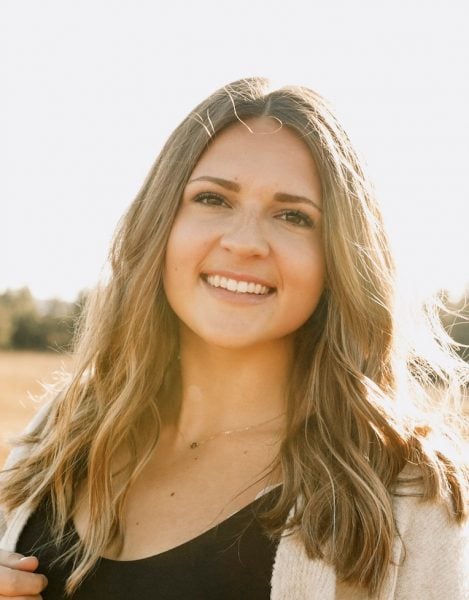
My name is Alexa and I am currently an Occupational Therapy student at Concordia University Wisconsin.
As an undergraduate student at Michigan Tech, I studied Exercise Science and also earned a minor in Psychology. As a pre-Occupational Therapy student at MTU, I was able to learn about the human body from many different perspectives. In addition to kinesiology and psychology classes, I also took courses in biology, biochemistry, anatomy, physiology, kinesiology, nutrition, neuroscience, epidemiology, neurology, mindfulness & meditation, psychopathology, & archaeology. Every course I took at Michigan Tech helped me become the occupational therapy student I am today, as OT is a holistic medical profession that highlights all branches of human health. That said, having a focus on movement science was especially helpful when learning the basics of the human body.
I chose occupational therapy as my future profession because it combines science and creativity effortlessly. For example, if two different clients came to see me for carpal tunnel treatment, their treatment plans would look very different from each other, even with the same diagnoses. Each patient requires treatment based on their unique occupations; things you need, want, and are expected to do in society. I was drawn to the vastness of opportunity that this career holds. I will never be bored and will always be helping others live their life to the fullest as an occupational therapist. Additionally, being an occupational therapist will require action through advocacy. Advocating for the profession as a whole, future clients, populations, as well as myself is something I am passionate about.
I went into my first semester at MTU nervous to get involved but quickly shed that fear. While I was at Tech I spent a lot of my time in the athletic training room, in the sleep research lab, and out in the campus & local communities promoting healthy habits & lifestyle changes. I invested time into experiences that I was passionate about. Through these experiences, I gained confidence in professional and medical language, developed interpersonal skills, and sharpened my analytical skills.
None of this would have been possible if I did not network with my professors, academic advisors, and mentors. The people at Michigan Tech are what sets my experience apart from what “could have been”. I truly don’t think I would have had the opportunities I did at MTU had I went elsewhere. The class sizes are small, the librarians and tutors are helpful, and the community that Michigan Tech creates is a safe one.
I applied to Concordia University – Wisconsin’s program right on time. CUW’s OT program was one of the only post-baccalaureate programs in the country to have a January start. I just so happened to graduate in December and knew if I had the choice, I wanted to head right to OT school. If I hadn’t been accepted, I would have applied to other schools and took the next few months to take a breather. But, it was fate, so I packed my bags and headed South to Milwaukee! Concordia’s OT program is a great fit and the view of Lake Michigan even reminds me of home.
My number one piece of advice is to take initiative when planning for your desired successes. When applying to OT school you should stay organized and be intentional about the choices you make starting your very first semester of undergrad. Talk to your pre-health advisor to plan both your academics and extracurriculars. I would also highly suggest shadowing practicing occupational therapists throughout your undergraduate career. This helped me directly learn about OT and stay excited about my future even when I was overwhelmed with the common stresses of school.
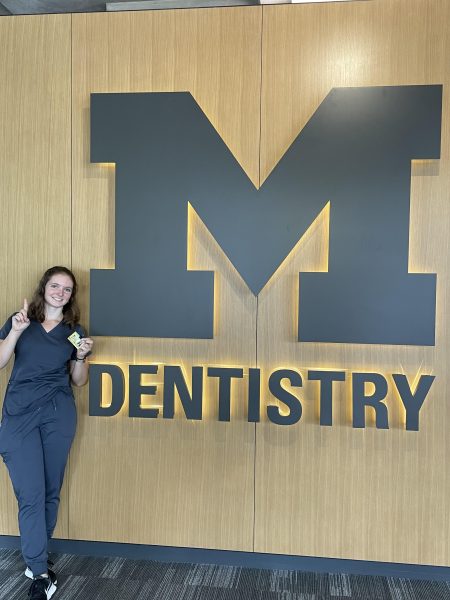
Hi, my name is Molly and I am currently a first-year student at the University of Michigan School of Dentistry. My undergraduate major at Michigan Tech was Biology with a Pre-Professional concentration. I applied to the University of Michigan’s program largely because it is one of the best schools in the country, maybe even the world. It also happens to be in-state for me, so while dental school is never cheap, it was still the most affordable option. The city that it’s in, Ann Arbor, is also a beautiful place to be with a lot of great food, parks, and opportunities for young professionals.
The first semester of dental school was made easier because of the biology and anatomy courses at MTU, the first semester of which leaning heavily on anatomy. Luckily, MTU helped prepare me well for the biology section of the DAT, as it turned out to be one of my highest-scoring sections. I also happened to take some engineering courses that were super helpful in perceptual ability in 3D space, which has been huge not only on the DAT but also in my first semester courses in dental school.
Having the opportunity to join several health-related clubs and honor societies definitely set me up for success. I found support in classmates who were working toward similar goals; maybe not dental school, but they were working just as hard to get into medical school or PA school. One honor society, in particular, Alpha Epsilon Delta (AED), gave us the opportunity to visit a cadaver lab, which is one of the first things you do in dental school. You’ll really get a feel if that is something you can handle. I also did a lot of volunteer work at Tech through these clubs. Volunteering is so rewarding, and it can be really fun to work alongside friends in something that will benefit the community! Lastly, make sure to talk with your pre-health advisor at MTU about study resources for the DAT. It is an expensive test, and any free resources or discounts on courses like Kaplan are a tremendous help to your wallet.
The biggest tip I have for students applying to dental school is to go further in dentistry than just shadowing. Most programs require a lot of shadowing hours, but you don’t really get a good idea of dentistry until you do something hands-on. Check out your local dental offices for opportunities; many of them are actively looking for assistants or infection control positions. They may even be willing to train you on the job like they did for me. Having that leg up in basic dental knowledge as soon as I started classes at U of M was such a huge help. Additionally, don’t forget that dentistry extends past the dental office. I worked for a dental consulting and research company before attending U of M, and not only did I learn even more about dentistry, I made some amazing connections with academics, researchers, and dentists alike. Do a little searching online and don’t be afraid to ask for help and for opportunities.
One set of courses that I highly recommend at Michigan Tech are their ceramics courses. We worked with a lot of fine tools to carve details into sculptures and had to design three-dimensional pieces. Talking with advisors and dental students, I get the feeling that dental schools like to see that you can work with your hands in clay, even if you don’t consider yourself to be “artsy”. Besides, on the DAT there is an entire section dedicated to testing your perceptual ability, and in school, you will have to turn objects around in your head to understand where structures are. Knowing how to bring a 2D image to life in your mind is a great skill to have when preparing for and attending dental school!